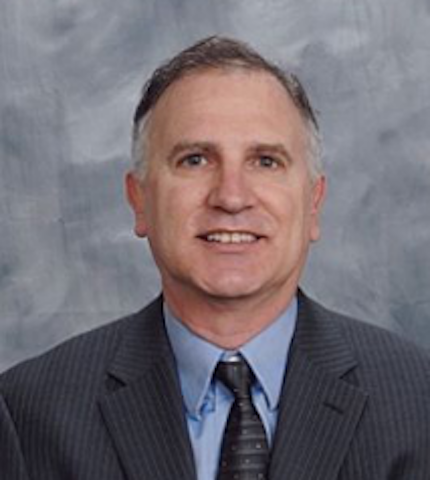 As we move from fee for service to alternative payment models/value-based purchasing we will increasingly measure our progress based on outcomes and total medical expense. HealthKit was an enabler that led Beth Israel Deaconess to create BIDMC@Home, an iPhone and iPad app that uploads internet of things (blood pressure cuff, glucometer, scale, activity, sleep data etc.) to our electronic health record. CareKit, announced by Apple this week, takes us one step further on our wellness-focused journey.
As we move from fee for service to alternative payment models/value-based purchasing we will increasingly measure our progress based on outcomes and total medical expense. HealthKit was an enabler that led Beth Israel Deaconess to create BIDMC@Home, an iPhone and iPad app that uploads internet of things (blood pressure cuff, glucometer, scale, activity, sleep data etc.) to our electronic health record. CareKit, announced by Apple this week, takes us one step further on our wellness-focused journey.
mHealth
See the following -
10 Key Statistics About mHealth
Since the original iPhone launch in 2007 and the iPad launch in 2010 the blistering pace of smartphone and tablet adoption has impacted virtually every industry. [...] Read More »
- Login to post comments
12 Tips for Mobile Health Randomized Controlled Trials
At the end of last year the Journal of Medical Internet Research (JMIR) recently published an editorial that argues standards are sorely needed to help edify the growing number of mobile health and eHealth efficacy studies. The editorial is a must-read for anyone looking to conduct randomized controlled trials (RCTs) of mobile health apps and services. Read More »
- Login to post comments
5 Ways Mobile Tech Can Improve Your Health
[People] increasingly access healthcare services via mobile, or “mHealth.” The result: Mobile is having a transformative effect on the way physicians and nurses care for patients. It’s also impacting how consumers manage their own health and well-being. Read More »
- Login to post comments
9th Annual Healthcare Unbound Conference Features Information Technologies Inspiring Consumer Engagement and Behavior Change
The Ninth Annual Healthcare Unbound Conference & Exhibition, organized by The Center for Business Innovation (TCBI), will focus on technology-enabled participatory medicine connecting everyone in the care continuum interested in inspiring consumer engagement and facilitating accountable care. The conference will take place at the Hotel Kabuki in San Francisco, CA, on July 19-20, 2012.
- Login to post comments
Advancing Text Messaging for Health
One of the main recommendations is for HHS researchers to help create health text message libraries based on the best available science and to make these libraries open access, publicly available, and downloadable and usable by anyone.
- Login to post comments
Alfred Hitchcock and the Future of Health IT
 Health IT is like the early Beatles. There are some really great applications out there, and in theory they should help to improve the lives of those that use them. In practice, there are a number of fundamental flaws that stem from not fully understanding the power of the technology that is used to present solutions to doctors and patients. We need to be more like Alfred Hitchcock! We are currently at the “elbow” of an exponential growth curve of mobile, connected applications. For a mobile application to be successfully in this new world, it needs to fully embrace the connected mobile technology and the power that a ubiquitous high speed network, that connects to a light weight, vibrating, touch screen, GPS, an accelerometer, camera, speakerphone, microphone, Bluetooth enabled device, along with serious amounts of computing power and data (and cloud) storage.
Health IT is like the early Beatles. There are some really great applications out there, and in theory they should help to improve the lives of those that use them. In practice, there are a number of fundamental flaws that stem from not fully understanding the power of the technology that is used to present solutions to doctors and patients. We need to be more like Alfred Hitchcock! We are currently at the “elbow” of an exponential growth curve of mobile, connected applications. For a mobile application to be successfully in this new world, it needs to fully embrace the connected mobile technology and the power that a ubiquitous high speed network, that connects to a light weight, vibrating, touch screen, GPS, an accelerometer, camera, speakerphone, microphone, Bluetooth enabled device, along with serious amounts of computing power and data (and cloud) storage.
- Login to post comments
AMPATH Improving Care At Scale With ODK and OpenMRS
AMPATH is the one of the largest HIV treatment programs in sub-Saharan Africa and is Kenya's most comprehensive initiative to combat the virus. The program's catchment area has over 2 million people and provides care to more than 130,000 HIV-positive patients across 55 urban and rural clinics. To provide care at this scale, AMPATH has invested in tools like OpenMRS (an open source medical record system) and Open Data Kit, to help improve the efficiency and impact of their health providers.
- Login to post comments
App Developer Competitions: Worth It?
Mobile app makers who are eager to showcase new ideas can take advantage of an expanding outlet for their creativity: developer competitions. Read More »
- Login to post comments
As American Docs Resist MHealth, Developing Countries Drive Growth
A new study of the global mHealth market finds that consumers and developing countries are driving its growth, while physicians are reluctant to adapt.
- Login to post comments
Axial Exchange Inc. Acquires mRemedy from DoApp and Mayo Clinic
Axial Exchange Inc...has acquired mRemedy, a company formed in 2009 by DoApp, Inc. and Mayo Clinic to offer a mobile healthcare platform to healthcare providers. The acquisition provides Axial Exchange with the software, pipeline and customers of the myTality® patient-facing mobile healthcare application, which helps patients navigate a future hospital visit, and helps hospitals better market their services. Read More »
- Login to post comments
Benefits of Patient-Generated Health Data to EHR Use
Patient-generated health data has the power to improve patient care, not just by completing EHR data, but by empowering the patient to engage in their own health. Between completing EHR information and empowering the patient as a part of the care team, patient-generated health data has the potential to be an integral part of enhancing the overall care for an individual...
- Login to post comments
Berg Insight Says 2.8 Million Patients are Remotely Monitored Today
Approximately 2.8 million patients worldwide were using a home monitoring service based on equipment with integrated connectivity at the end of 2012. The figure comprises all patients that were using dedicated devices for remote monitoring. Read More »
- Login to post comments
CareKit as an Enabler for Patient Generated Healthcare Data
- Login to post comments
CDC: Have App, Will Travel
The federal Centers for Disease Control and Prevention now has an app geared toward the iPad generation. The CDC's leap into mobile health gives iPad users touchpad access to the organization's Facebook, Twitter and YouTube sites, as well as articles about health topics, a health-related blog, updated CDC announcements and news releases, and the CDC's podcast library. Read More »
- Login to post comments
CMS To Invest $5+ Billion a Year in Open Source and Cloud-based IT Infrastructure for Medicaid
 After more than 40 years of relying on monolithic mainframe platforms to administer its services, the Centers for Medicare & Medicaid Services (CMS) has embraced a new modular, open and agile approach to Medicaid health information technology for the Federal government and States. In many ways, this is the best of what open source advocates and technology innovators could have hoped for when it comes to open source policy from a government agency. According to Andrew Slavitt, Acting Administrator of CMS, the agency will spend more than $5 billion a year to fund this transformation.
After more than 40 years of relying on monolithic mainframe platforms to administer its services, the Centers for Medicare & Medicaid Services (CMS) has embraced a new modular, open and agile approach to Medicaid health information technology for the Federal government and States. In many ways, this is the best of what open source advocates and technology innovators could have hoped for when it comes to open source policy from a government agency. According to Andrew Slavitt, Acting Administrator of CMS, the agency will spend more than $5 billion a year to fund this transformation.